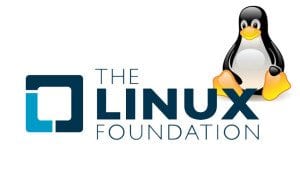Akamai, Cisco, Electronic Frontier Foundation, Mozilla and others aim to provide free, easy way to protect our online lives with Let’s Encrypt
The Linux Foundation, the nonprofit organization dedicated to accelerating the growth of Linux and collaborative development, today announced it will host the Internet Security Research Group (ISRG) and its Let’s Encrypt project, a free, automated and open security certificate authority for the public’s benefit. Let’s Encrypt allows website owners to obtain security certificates within minutes, enabling a safer web experience for all.
This work is sponsored by founding Platinum members Akamai, Cisco, Electronic Frontier Foundation and Mozilla; Gold member IdenTrust; and Silver member Automatic.
New Encryption Project
The Mozilla Foundation, Electronic Frontier Foundation as well as other leading technology companies and key open source developers are working together on this new digital secruity certificate.
CIOs have known for some time that the only way to have reliable security is to encrypt every website (I.e., served over Transport Layer Security (TLS) with the little green lock). Existing certificate authority services are expensive, complex, and often expire unless manually updated. Just last week Google had its own Gmail saftey run-in because it neglected to renew a security certificate.
A tremendous amount of data is passed over the Internet every minute of every day. This data includes usernames and passwords, credit card information, cookies and other types of sensitive or personal information. Encryption can help ensure this information doesn’t land in the hands of hackers or identity thieves. However, the SSL certificates required for encryption on the Internet have historically been very difficult for website owners to obtain. Let’s Encrypt will allow website owners to obtain SSL certificates through a free and simple process that will take no longer than a few minutes to complete.
“While the web has been a part of our lives for decades now, the data shared across networks is still at risk,” said Jim Zemlin, executive director at The Linux Foundation. “By hosting this important encryption project in a neutral forum we can accelerate the work towards a free, automated and easy security certification process that benefits millions of people around the world.”
“Encryption should be the default for the web,” said Josh Aas, executive director, ISRG. “The web is a complicated place these days; it’s difficult for consumers to be in control of their data. The only reliable strategy for making sure that everyone’s private data and information is protected while in transit over the web is to encrypt everything. Let’s Encrypt simplifies this.”
To learn more about this project and to get involved, please visit: here
ISRG is a California public benefit corporation with the mission to reduce financial, technological and education barriers to secure communication over the Internet. ISRG and Let’s Encrypt will be hosted as a Linux Foundation Collaborative Project, which are independently funded software projects that harness the power of collaborative development to fuel innovation across industries and ecosystems. By spreading the collaborative DNA of the largest collaborative software development project in history, The Linux Foundation provides the essential collaborative and organizational framework so project hosts can focus on innovation and results. Linux Foundation Collaborative Projects span the enterprise, mobile, embedded and life sciences markets and are backed by many of the largest names in technology. For more information about Linux Foundation Collaborative Projects, please visit here
Linux Foundation’s role
Linux Foundation will host the project and work. It is dedicated to improving Internet security, has a track record in helping build open source communities around important projects, and providse a number of ancillary services to let developers focus on development. As you know, it also hosts the Core Infrastructure Initiative that was established a year ago in response to Heartbleed and has since funded OpenSSL, OpenSSH, NTP, and more.
About The Linux Foundation
 The Linux Foundation is a nonprofit consortium dedicated to fostering the growth of Linux and collaborative software development. Founded in 2000, the organization sponsors the work of Linux creator Linus Torvalds and promotes, protects and advances the Linux operating system and collaborative software development by marshaling the resources of its members and the open source community. The Linux Foundation provides a neutral forum for collaboration and education by hosting Collaborative Projects, Linux conferences including LinuxCon, and generating original research and content that advances the understanding of Linux and collaborative software development. For more information please visit here.
The Linux Foundation is a nonprofit consortium dedicated to fostering the growth of Linux and collaborative software development. Founded in 2000, the organization sponsors the work of Linux creator Linus Torvalds and promotes, protects and advances the Linux operating system and collaborative software development by marshaling the resources of its members and the open source community. The Linux Foundation provides a neutral forum for collaboration and education by hosting Collaborative Projects, Linux conferences including LinuxCon, and generating original research and content that advances the understanding of Linux and collaborative software development. For more information please visit here.
The opinions expressed in this post belongs to the individual contributors and do not necessarily reflect the views of Information Security Buzz.



